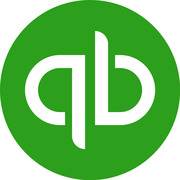QuickBooks Online Pros and Cons
Overall Satisfaction with QuickBooks Online
The majority of our monthly accounting clients are on QuickBooks Online (QBO). It addresses the problem of having to wait for clients to provide bank/credit card statements at the end of a month or quarter before we can begin moving forward with the monthly closing process. It also allows for great collaboration with the clients so that a lot of double work is eliminated. By integrating with other apps available on the QuickBooks Online App Store, it is possible to achieve a great deal of automation with things like sales transaction entry.
Pros
- Sync with online banking and credit card accounts
- Integration with third-party apps
- Data is always backed up
- Data is available anywhere there is an internet connection
Cons
- Inventory tracking for clients with huge turnover, backorders (there are third-party app integrations that work on a smaller level, but we had to go to QuickBooks Enterprise Hosted for one of our large retail clients because of the more robust inventory reporting features).
- Pricing continues to go up over time.
- While great for the average business owner, there are a few features that are built-in to virtually all professional accounting systems that I believe they should make available at least in the Accountant version of QBO (things like closing distributions into retained earnings when closing an S Corp's books for the year).
- Positive - save time with repetitive data entry
- Positive - reduce double work by making client's activities (such as invoicing) part of the actual accounting system
- Negative - higher software costs than our old software (it may be argued that this is made up for in the time savings that resulted from switching to QBO)
They are tough competitors. I believe each has their own strengths and weaknesses. Overall, QBO is slightly less expensive than Xero (at the moment, at least), so that is a plus. The real reason that we went with QBO in the beginning is that it was a more mature product, and it is easier to have as many clients as possible on the same platform for a variety of purposes.




Comments
Please log in to join the conversation